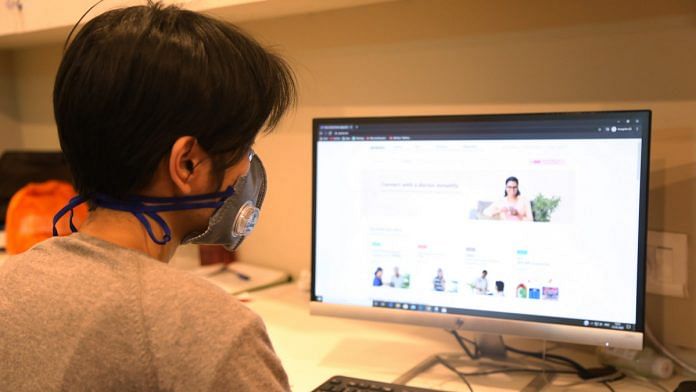For children and young people looking to gain education and skills, Covid-19 has made a bad situation even worse.
Before the pandemic, they faced a growing mismatch between the skills they were learning in school and those needed for employment.
Now, under the shadow of Covid-19, over one billion are out of school altogether. And millions of young people who were set to join the workforce cannot find jobs. This moment is an important opportunity to reimagine how, and what, education and skills are delivered to prepare students for a rapidly changing world of work.
But governments and businesses cannot address this problem alone.
So, on World Youth Skills Day, we decided to bring together young people from Algeria, Argentina and South Africa to hear their thoughts about how we can re-design and re-imagine education and skills systems to meet their needs.
The virtual discussion, moderated by Mari-Lisa Njenga, a youth advocate from Kenya, identified four important principles that should guide change.
1. Modern skills, not old fashioned curricula
There was a strong sense that schools and universities aren’t currently equipping young people with the right skills, and aren’t teaching in a way that makes the most of modern technology and resonates with young people today.
“I believe we need to make educators aware of the fact that education curricula are outdated,” said 20-year old Rafik Amrani, who studies business and computer sciences at the American University of Beirut. He thinks businesses have an important role to play. “They know which skills are lacking in their recruits so they can tell educators which skills are relevant,” he added.
Also read: OK Boomers, you might be one of the reasons why Millennials are embracing socialism
2. Soft skills are key
The young participants agreed that to be successful in the future of work, their generation will need strong soft skills such as communication, critical thinking and resilience – and that they’ll need to keep learning all their lives.
“When a policy doesn’t exist or a rule is in favour of a specific group in your community, you need to know how to be able to change that,” said Maryam Elgoni, a masters student in international relations. “For example, how to start a petition, organise a march, or effectively give input into a policy or your company programme.”
According to Ulises Brengi, a landscape architecture student at the University of Buenos Aires, we need to stop looking at skills as high-level, academic knowledge, and more as human skills. “I hope that this crisis will take us to a new and more responsible economy, not only based on making a profit. In order to achieve that, we need people with strong soft skills,” he added.
3. Digital connectivity and digital learning
Another theme that came through strongly was the potential of digital connectivity and online learning to expand access to opportunities for young people around the world.
“To reimagine the future of skills, I think we need more diverse online learning exchange programmes. And if we can make sure every young person, everywhere, has access to a cellphone and the internet, it’s a way for us to build a fairer future for skills,” Brengi added.
4. Reach vulnerable communities
Access was another key theme we discussed during the session. “It’s the notion of decentralising education and understanding that it doesn’t only happen in the classroom,” explained Elgoni. “It’s also about specifically trying to reach out to those who are in vulnerable situations.
“On the business side, it’s about creating opportunities for people in vulnerable spaces,” she added. “When you think of people getting internships, it’s often because they’re in the suburbs or they’re able to access office parks. We need to make sure young people in vulnerable communities have access to those opportunities too.”
Elgoni also shared a powerful vision for the future which we should all aspire to: “I look forward to a future where every young person who has a dream will never feel their dream is limited because of their circumstances,” she said. “That there is no skill that is unreachable because of who you are or where you are.”
Henrietta H. Fore is the Executive Director, United Nations Children’s Fund (UNICEF) and Robert E. Moritz is the Global Chairman of PwC.
This article was first published in World Economic Forum.
Also read: Covid exposed global fragility. We need a new social contract: UN Chief



